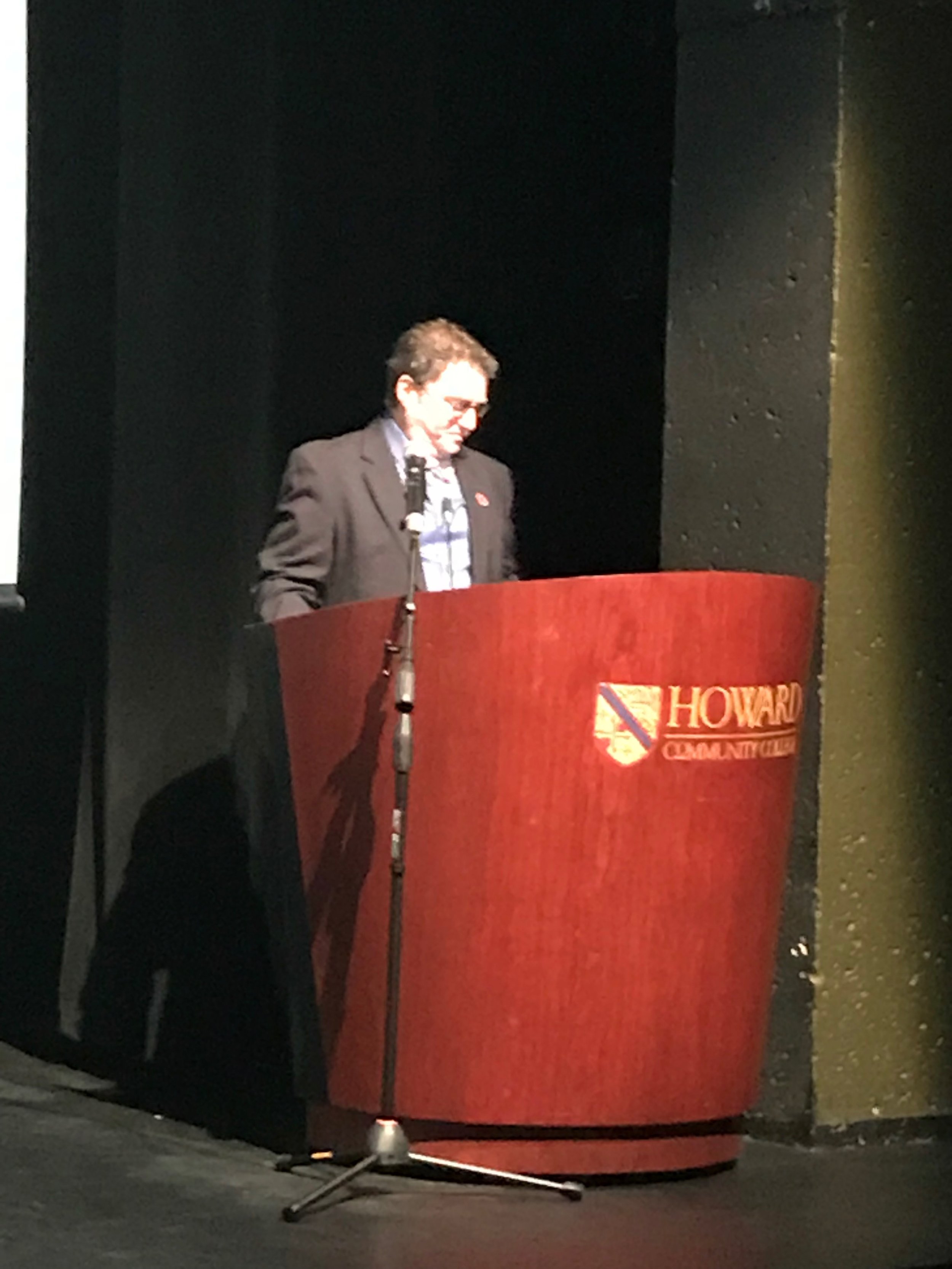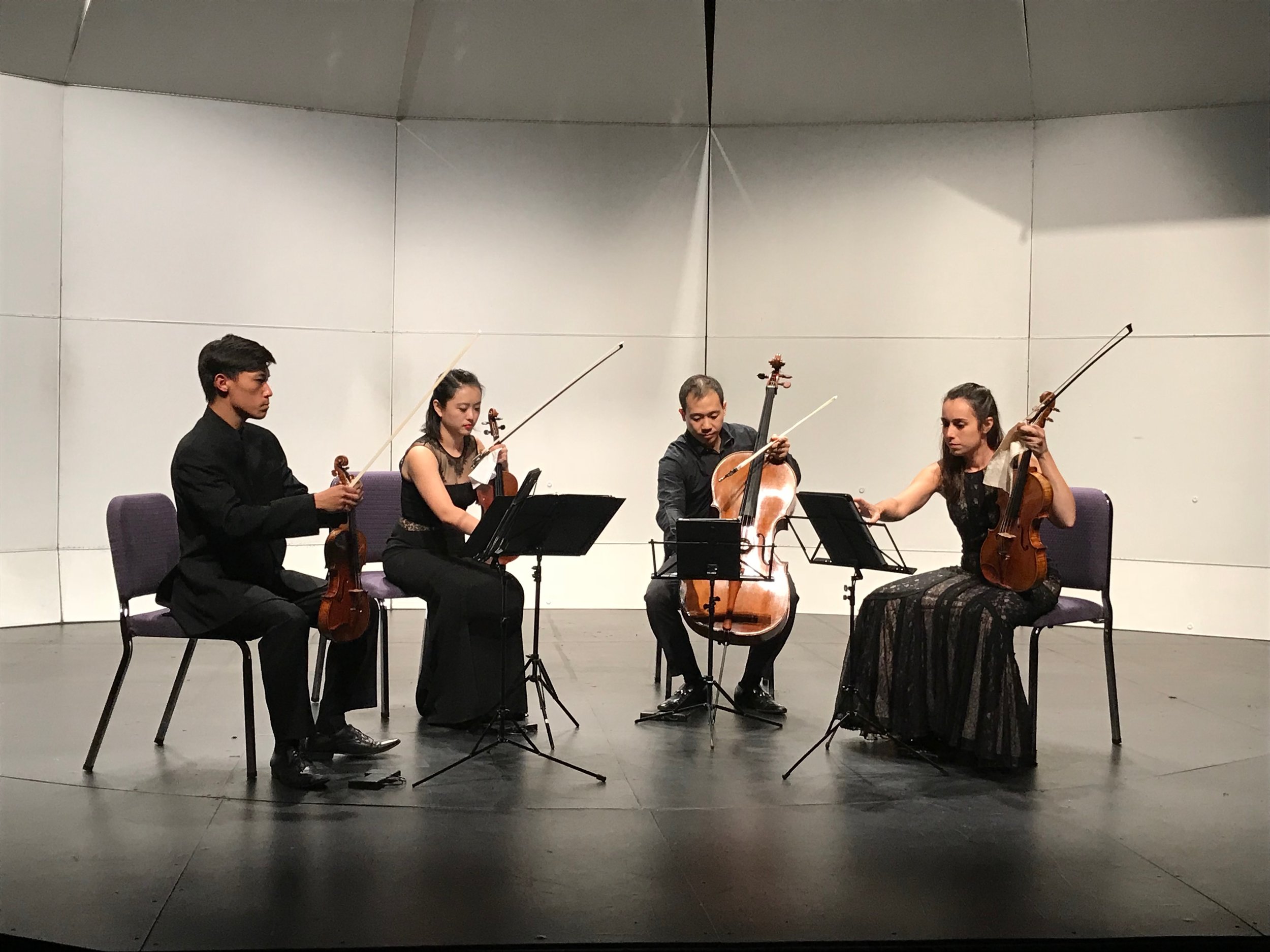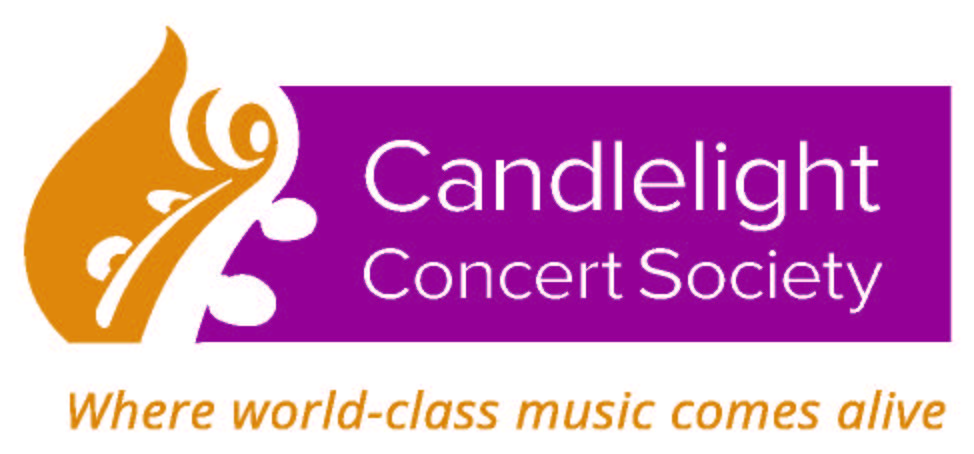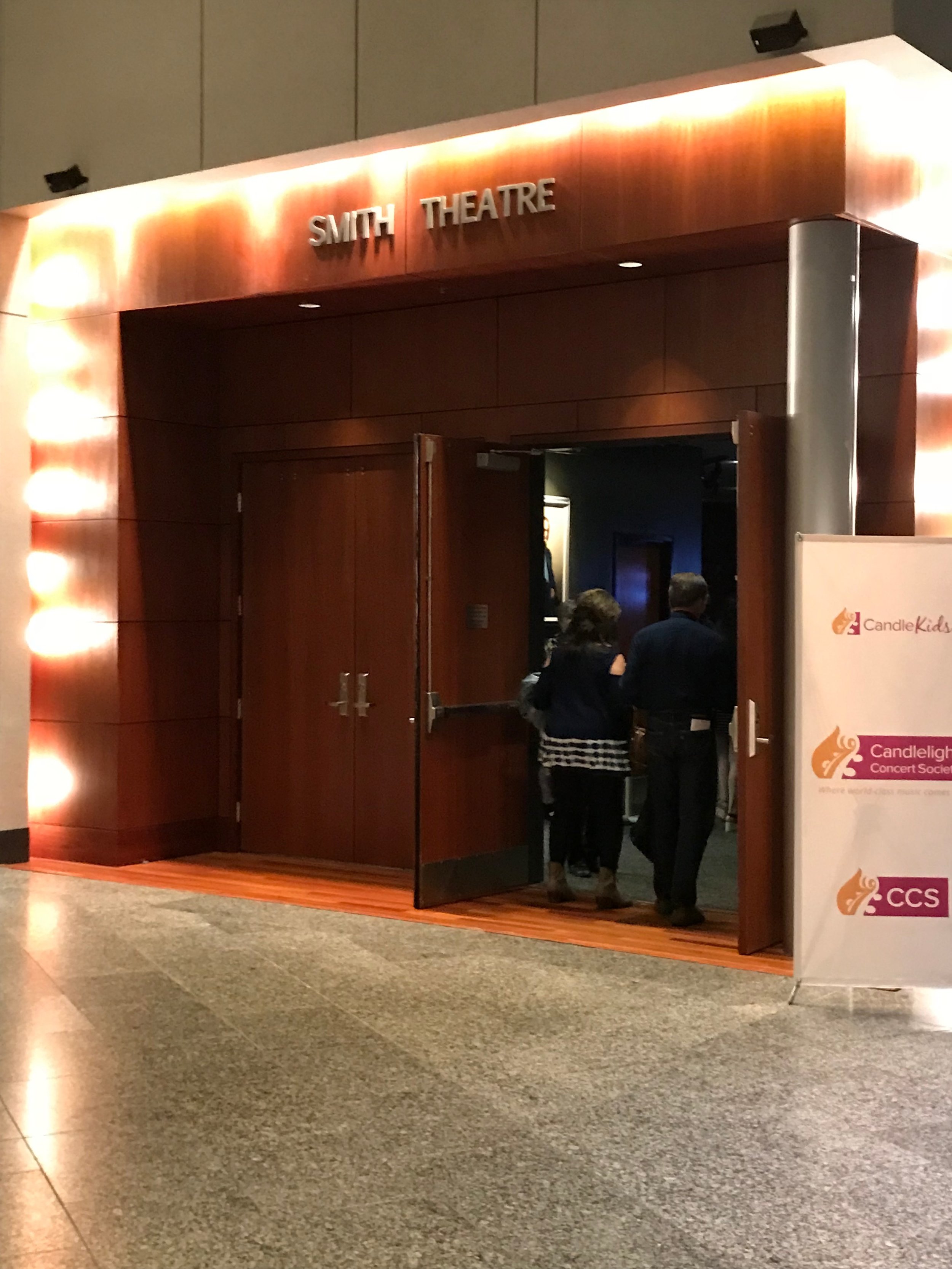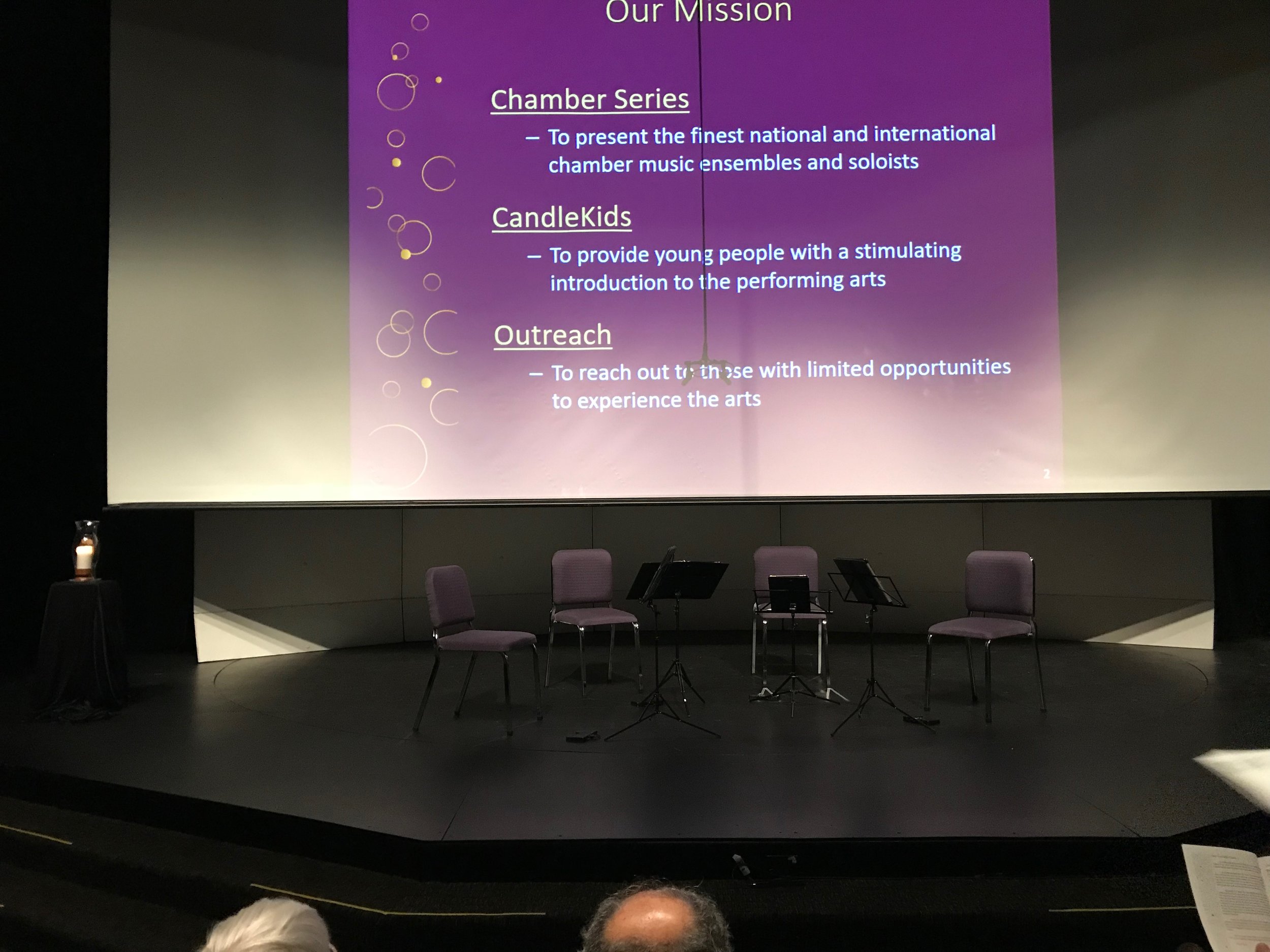I veer again from opera due to the Parker Quartet. It’s my third attendance at one of their concerts, and if they were playing again in areas near me, I’d likely veer once more; they are that good. Plus, I feel like we have developed a relationship where they are teaching me about modern classical music. Also, this was my first attendance at a Candlelight Concert, forging a new relationship there. The point I’m struggling to make is this: we are actually all in this together. I think that the audience, we music fans, play a role at concerts, and thereby have a relationship with the performers and promoters. Successful cultural events are a matter of teamwork; we music fans need to own it as well! I probably should have added “and Music Fans” to the title of this blog post. In addition to attending to my duties as a music fan, I like to write about performances from the standpoint of the music fan. And when I run across a quality and fun concert series, I like to write about that too. By the way and for the record, the composers featured at this concert all also wrote successful operas.
The concert program –
Jonathon Palevsky, WBJC. Photo by author.
The concert included two parts; each part featured two music selections, and each part was preceded with narration by Jonathan Palevsky of WBJC. Mr. Palevsky opened the program, titled “Composing the Revolution”, with an informative and entertaining discussion of early 20th century Russian history from the era of World War I and the Russian Revolution to World War II; he also led off part two with comments on the lives of composers Stravinsky, Shostakovich, and Prokofiev during this period and illustrated his comments with photos from that era. Each of these composers were gifted men who had complicated relationships with their mother country in harsh, dangerous times. Troubled times caused Stravinsky to move from Russia to France and then to the US. Stalin took a dislike to Shostakovich and only maestro's fame as a beloved Russian composer and his supporters keep him out of prison or perhaps from an untimely death. Prokofiev also moved about, and we were introduced to a Russian official, Anatoly Lunacharsky, who provided support and cover for these men, as a protector of the arts. These composers were vanguards of modern music and perhaps the changing world of their time was reflected in their music. Mr. Palevsky’s provision of an historical backdrop to the music made for a more comprehensive experience and significantly increased my enjoyment of the concert.
The Parker Quartet preparing to begin. Photo by author.
As to the music, let me say that the Parker Quartet is really, really good. I have raved about the excellence of this Grammy Award winning group in two previous posts, 2016 and 2017, and how, as a result of our association, they are causing me to face the fact that I might like modern classical music. They played Igor Stravinsky’s “Concertino for String Quartet” (1920) and Dmitri Shostakovich’s “String Quartet No. 3” (1946) in part one of the program. In part two, they played Stravinsky’s “Three Pieces for String Quartet” (1914) and Sergei Prokofiev’s “String Quartet No. 2” (1941). Perhaps to illustrate how well they performed for this concert, it is enough to simply point out that the Parker Quartet not only received a heartfelt standing ovation at the end of the program which brought them back to the stage twice more for additional applause, they also received a spontaneous standing ovation at the end of part one, prior to intermission, though I think that was mainly for the inspired performance of the Shostakovich Quartet. That quartet required an individual and synchronized technical deftness of playing that was thrillingly executed. I liked the Stravinsky pieces and the Prokofiev quartet was also enjoyable, but it is Shostakovich that I now most want to learn more about and hear more of. The Parker Quartet has nudged me further into modern classical music, but I may need more coaxing for Stravinsky.
I also want to make one more point, this about music in general and the Parker Quartet in particular: you have to be there to get the full effect! The Quartet demonstrates showmanship with their demeanor and sometimes exaggerated movements while playing; their expressions, especially their quick looks for signals from each other, are fun to watch. And the sound is so much richer live than recorded. When the four instruments are playing staccato, for example, you can see the bows move and pick out the sounds coming from each string instrument. This isn’t high fidelity. It is highest fidelity. And it is exciting and the way music was meant to be heard.
Who was that history guy -
When I saw that the narrator for the concert was Jonathon Palevsky, WBJC, my first thought was to wonder what degree was a WBJC, just too many letters. A little embarrassed, I had to look it up. Hey, I’m from Northern Virginia. Now, I know that WBJC is 91.5 FM, Maryland’s Classical Music Station and Mr. Palevsky is Program Director for the station. I now also know that he moved to Baltimore from Canada and studied classical guitar at the Peabody. He is very well known among Baltimore area classical music fans. Of more importance to me, he has a regular program titled Opera Preview on Saturday’s at 12:30 pm before WBJC plays a full-length opera. And WBJC can be heard streaming online all the way down into Northern Virginia. Regardless, Mr. Palevsky is a delightful speaker and provided additional context to the evening.
The concept for the concert -
I don’t know whose idea it was to couple a string quartet with a lecture on history, but it worked. It didn’t come off completely smoothly, sort of like a college lecture – slide issues, a hanging mike casting a small shadow on the slide screen, and a little awkwardness in moving between music and lecture, but these were tiny issues. The important point is that coupling music by Russian composers played by a fabulous string quartet and an entertaining speaker with great photos on early 20th century Russian history enhanced both the music and the lesson. Kudos to Candlelight Concerts. I’ve read that today successful companies sell an experience, not a product. Candlelight Concerts also offered an after-performance reception with refreshments for the attendees – very cool. These ideas and more like them are well worth exploring by companies organizing/presenting cultural events today.
The Candlelight Concert Society -
Logo courtesy of the Candlelight Concert Society
I discovered the Candlelight Concert Society, the organizer for this event, by following my interest in the Parker Quartet. Looking at the schedule on their website, I found out they were performing at a Candlelight Concert, which happens to be in Maryland, at the Smith Theater, part of the Horowitz Visual and Performing Arts Center, a new modern facility promoting the arts and culture – all news to this Virginian. I also discovered that the concerts are one of the products of the Candlelight Concert Society. The CCS utilized the opportunity to have the Parker Quartet meet with students in two middle school programs, pretty impressive educational outreach. It should be mentioned that the concert was sponsored by Rosalie Lijinsky Chadwick in memory of William Lijinsky. The Society and its sponsors are providing its community with an extraordinary opportunity to hear outstanding classical music live. Maryland, the ball is in your court, and Northern Virginians/DCers, I can attest that it is accessible.
The Fan Experience: Driving over from Tyson’s Corner for a 7 pm conference on a Saturday was easy, made it in about 50 min. The GPS came in handy once off I-95, but on the campus of Howard Community College, having looked at Google Maps ahead of time helped make it easy to drive right to the West Parking Deck across the street from the Horwitz Center, with plenty of free parking: easy in, easy out. I might go back some time just to experience easy in and easy out for a concert one more time: joking. The Smith Theater is a relatively small modern facility, with fine acoustics, especially since you are very close to the performers. All of this season’s concerts are planned for the Smith Theater EXCEPT for the next one up.
The entrance and stage for the Smith Theater. Photo by author.
Next up: On Sunday, November 12, the Candlelight Concert will feature concert pianist Simone Dinnerstein and the Telegraph Quartet playing a program of Webern, Dvorak, Schubert, and Brahms; viewing the concert program online appears to require that your device have Dropbox installed). The concert will be held in Linehan Hall on the campus of the University of Maryland Baltimore County; tickets for the concert are $35 and can be ordered online. The more I read about these critically acclaimed artists the more I am impressed. The Telegraph Quartet resides in San Francisco where they are artist in residence at the San Francisco Conservatory. They have been lauded for tonal beauty as well as technical excellence. Recording artist Ms. Dinnerstein has played in major concert halls across America and Europe. I find it remarkable and a feather-in-their-cap for the Candlelight Concert Society that they have them playing together; this is quite an event. Ms. Dinnerstein’s story – see video below from YouTube - of how she achieved her current status in the musical world is a truly remarkable story of following your own path to find your own voice.


